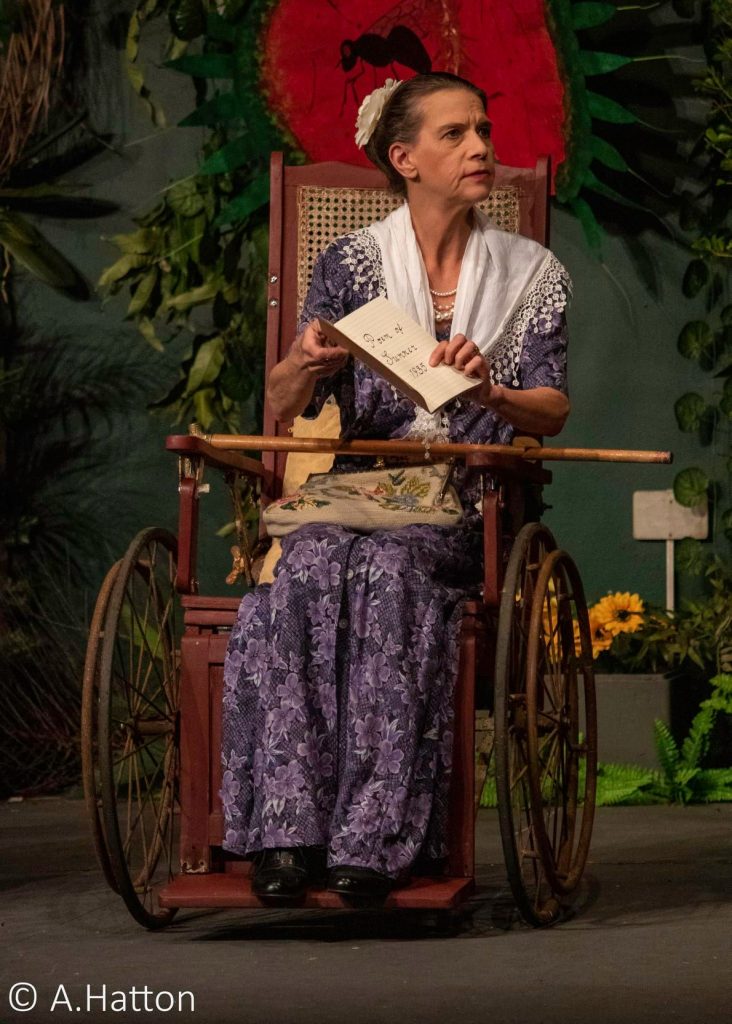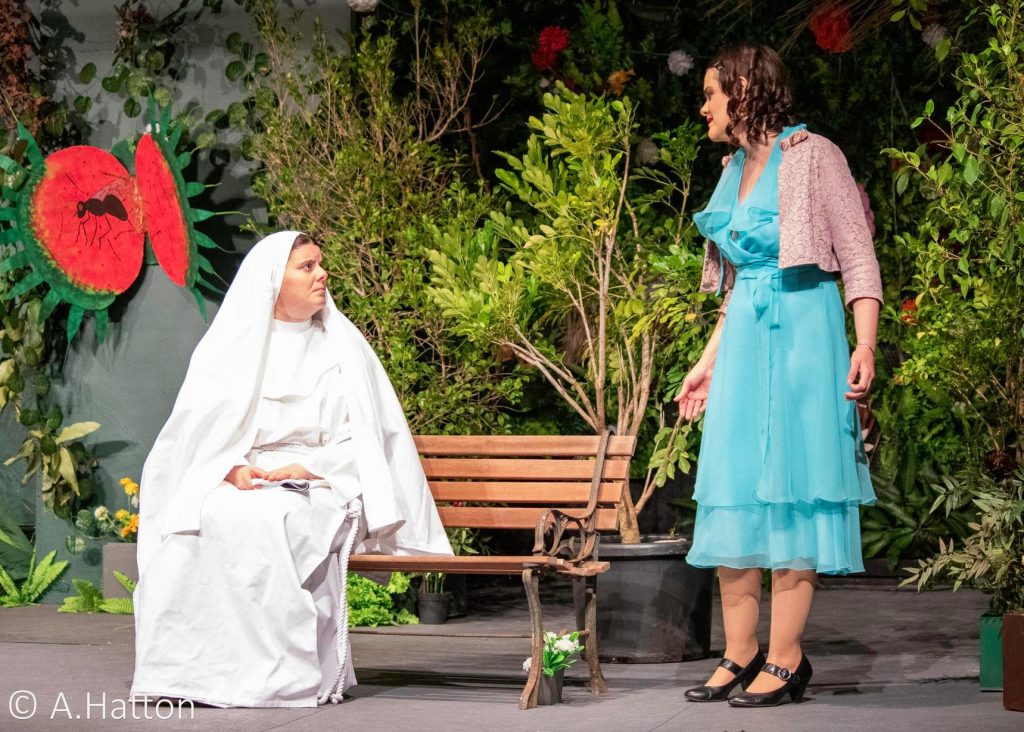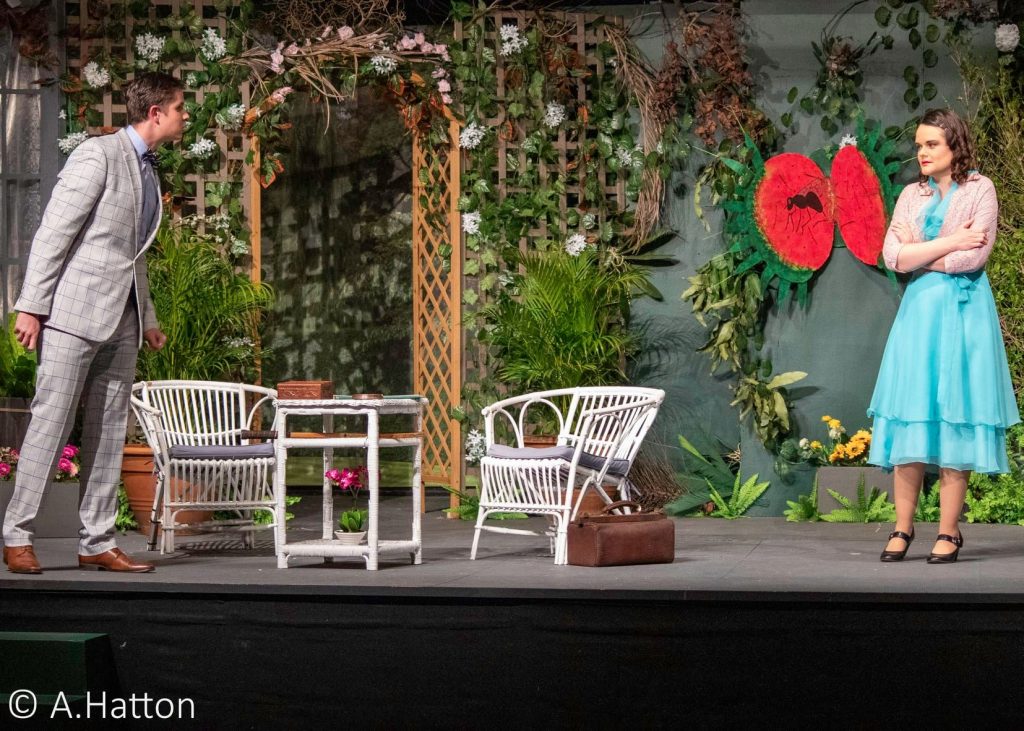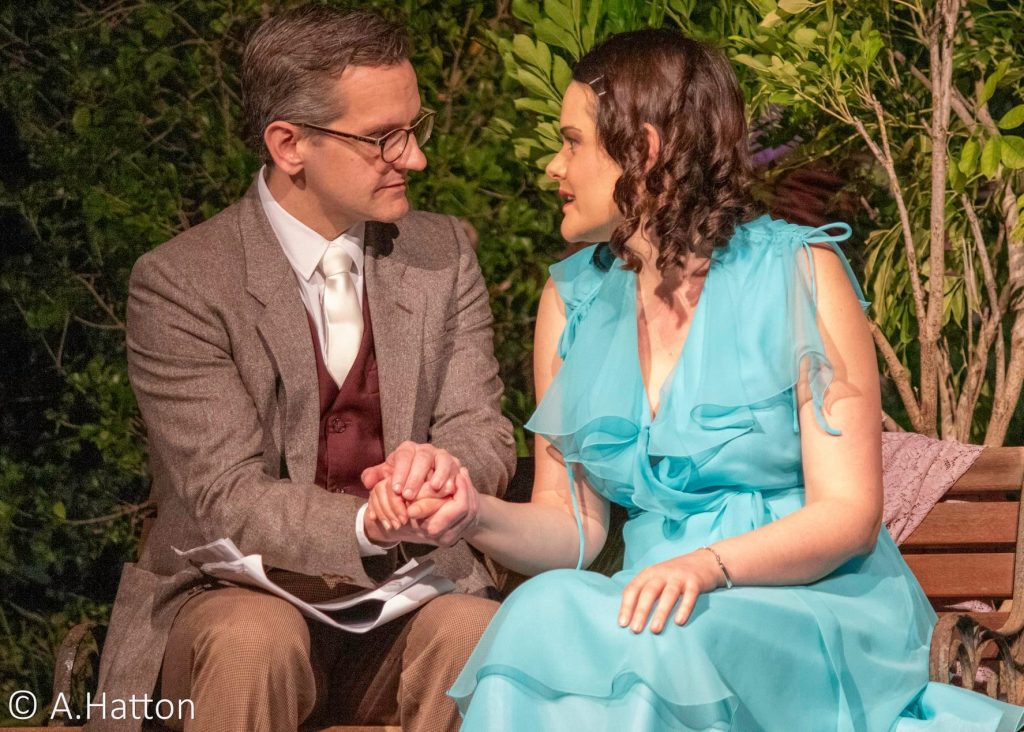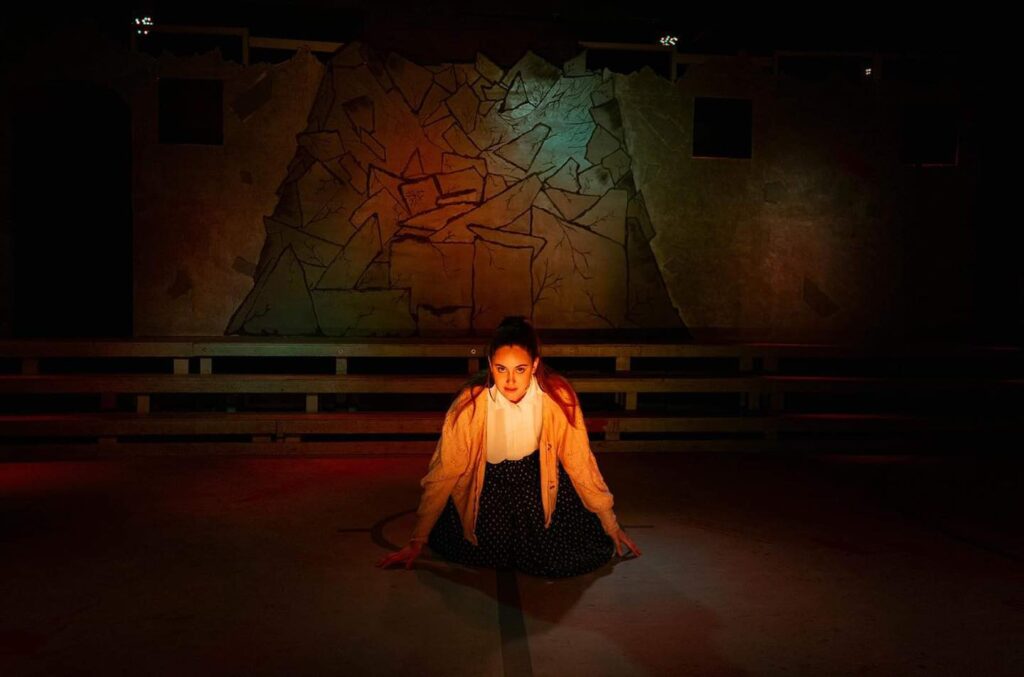
‘Suddenly Last Summer’ // Growl Theatre
‘Suddenly Last Summer’ was haunting.
Tennessee Williams’ plays can be challenging, especially for the director, the performers, and sometimes the audience, and ‘Suddenly Last Summer’ is no exception. A one-act play originally presented as a double bill with ‘Something Unspoken’, Williams himself thought this was one of his most lyrical works, and it is ranked amongst one of his best.
‘Suddenly Last Summer’ is the horrific story of Sebastian Venable – a self-involved sadistic gay man with an overprotective mother, who mysteriously dies the previous summer while on holiday in Spain with his wild cousin, Catherine Holly. Catherine is the sole witness to the event, and her recounting of what happened results in Sebastian’s mother Violet having her committed to St. Mary’s, a private mental asylum. Determined to protect her son’s memory and “shut her up once and for all”, Violet invites a doctor to her home and offers to make a generous donation to support his psychiatric research if he performs a lobotomy on Catherine. Although trusting of this new medical procedure, he is not sure that it’s appropriate for Catherine’s condition and so wishes to talk with her first. Arriving with Catherine are her mother and brother. They are also eager to suppress her version of events since Mrs Venable is threatening to keep Sebastian’s will in probate until she is satisfied, something Catharine’s family can’t afford. The doctor finally decides to inject Catharine with a truth serum and she proceeds to give a scandalous account of the shocking events, which led up to Sebastian’s death.
First-time directors, Charles Langford and Brendan James bravely took up the challenge of staging this darkly poetic drama for Growl Theatre. The stage at the Windsor School of Arts was bedecked with foliage of all kinds to create Sebastian’s “jungle garden”, including the Venus flytrap mentioned in Violet’s opening speech. Furnishings, including a wonderfully authentic looking wheelchair, were perfect for the 1930s period. Great attention to detail was displayed by Langford and James in the set design and all properties used in this production.
Soundscape design by Mike Alizzi was equally impressive as the sounds of a garden bustling with insects and birds opened the first scene and then subtly continued as background noise throughout the rest of the production. In particular, a sound effect used during Catherine’s final monologue assisted in building the tension of the moment to a dramatic climax. Costumes by Rosemary McLead and Wendy Shead were era-appropriate and looked wonderful under the effective lighting design by Brandt Laing.
The direction was tight, keeping the pace and energy at a level that allowed this 90-minute dialogue rich piece to flow along nicely, with a number of beautifully constructed moments throughout. The Southern American accents necessary for a Williams play varied from excellent to mostly solid, with one character having no American accent at all – this unfortunately jarred with the overall rhythm of the piece. The ensemble cast of seven worked well together, with standout performances from Jenny Bonney-Millett, Bianca Butler Reynolds, and Daren King.
As Violet Venable, the socialite widow, Jenny Bonney-Millet gave an impressive portrayal as the perfect example of a domineering and vicious woman who has a destructive and crippling hold of her son, and who will stop at nothing to protect his reputation. Her vocal work, accent and physicality were excellent from start to finish.
Bianca Butler Reynolds performance as the mentally fragile, yet spirited Catherine Holly commanded the audience’s attention from the second she arrived on stage to the final intense moments of the play. Reynolds’ edgy physical tenseness at the beginning, like a butterfly trapped in a net, was in perfect contrast to the focused stillness displayed as the character finally manages to free herself of the story that binds her. It is in these scenes that Reynolds really excels as we witness Catherine’s inner turmoil as she struggles to come to terms with not only the horror of what she saw but her own failings, guilt and shame.
In the role of Doctor Cukrowicz, Daren King gave a finely nuanced performance as a man put in an unenviable position in order to gain financial assistance from a wealthy benefactor. His gentle calm manner as the doctor worked perfectly as his character guides Catherine into agreeing to finally speak the truth. The scenes between King and Reynolds were definitely highlights of this production.
Marian Jones as Catherine’s money-hungry mother, and Lachlan Driscoll as her wastrel brother, George, both gave solid performances and brought some much-needed humour to the proceedings.
As Sister Felicity, who has been tasked with accompanying Catherine from the asylum and Miss Foxhill, Mrs Venable’s put-upon maid, Elizabeth Scales and Betsy Applehof, respectively, round out the cast nicely in roles essential to the play’s completeness.
‘Suddenly Last Summer’ revels in excess, and although certain aspects of the play may seem unpalatable to contemporary sensibilities, this well-directed production of Williams’ pivotal work is one worth viewing.
‘Suddenly Last Summer’ performs until Saturday, 29 August 2020 at the Windsor School of Arts. For more information visit Growl Theatre’s Website.




